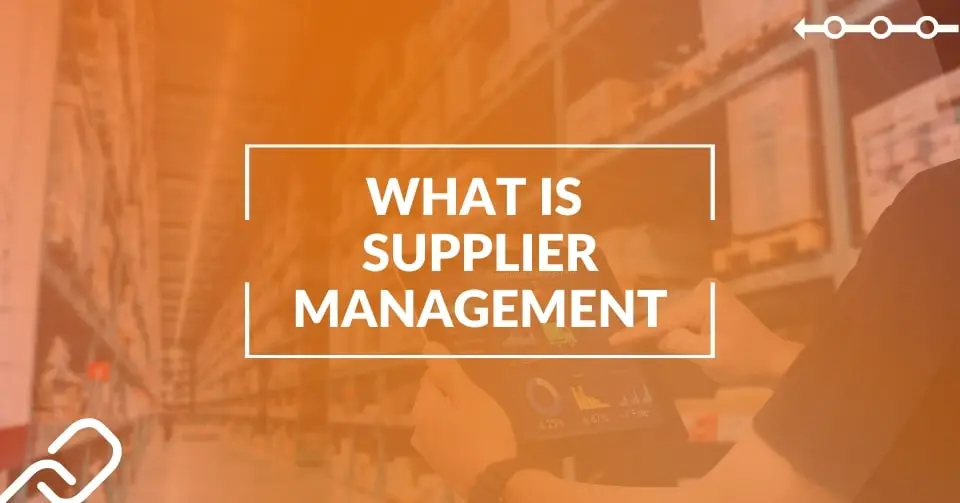In the food manufacturing industry, supplier management is crucial in ensuring the quality, safety, and consistency of the products that reach consumers. The process involves selecting, evaluating, and maintaining relationships with suppliers who provide raw materials, ingredients, or services essential for food production.
Effective supplier management is not just about cost efficiency; it is a fundamental aspect of food safety, regulatory compliance, and business sustainability.
This article explores the importance of supplier management, outlines its process, and highlights how advanced tools can revolutionize supplier oversight and enhance food safety practices in the manufacturing industry.
Why Supplier Management Is Important?
Suppliers are the foundation of the food production process. The quality and safety of raw materials directly affect the final product. Poor supplier practices can lead to contamination, non-standard ingredients, and even food-borne illnesses.
As a result, consumer health and brand reputation are at risk. Additionally, food manufacturers must adhere to strict regulatory standards set by the FDA, USDA, and FSMA.
Following these requirements reduces the risk of violations and penalties. Proactive supplier management reduces inefficiencies in purchasing and inventory management. Working with reliable suppliers reduces waste, delays, and production disruptions, ultimately saving costs.
In addition, supply chain disruptions, such as component recalls and inconsistent quality, can have significant economic and reputational impacts. Supplier management reduces these risks by ensuring transparency and accountability throughout the supply chain.
Modern consumers value durability. Collaborating with suppliers that value ethical practices, environmental management, and social responsibility helps food manufacturers meet their sustainability goals and attract environmentally conscious consumers.
The Supplier Management Process
Effective supplier management requires a structured approach that combines various steps to ensure reliability and regulatory compliance. The process begins with supplier selection by various companies, and suppliers that meet quality, safety, and regulatory standards are identified.
In this phase, the potential supplier’s history, certifications, and market reputation are assessed through research. A detailed request for proposals (RFP) will help evaluate capabilities and pricing, as well as site visits, facilities, processes, and hygiene practices.
After selection, suppliers undergo a qualification process that includes verifying certifications such as HACCP, ISO 22000, or SQF. Component samples are analyzed to verify quality and safety. Risk is assessed based on factors such as geographic location, supply chain complexity, past performance, etc.
Once the qualifications have been passed, suppliers are integrated into operations by developing contracts that set clear expectations. These contracts describe the product requirements, quality safety standards, delivery period, price structure, and penalties for non-compliance.
Audits or audit suppliers play a crucial role in ensuring that necessary standards are consistently upheld. Essential tasks such as conducting regular audits, monitoring performance, and maintaining documents work together to confirm compliance and maintain quality.
Building strong relationships through relationship management promotes collaboration and trust. Regular communication, feedback, and collaborative problem-solving are key to a long-term partnership.
Corrective action and continuous improvement are essential when problems arise. This includes identifying the root cause, taking corrective measures, and improving supplier management strategies to prevent recurrence.
Challenges in Supplier Management
Although supplier management is essential, it faces several challenges that require practical solutions. Global supply chains are often complex and involve many intermediaries, increasing the risk of miscommunication and inconsistent quality. Tracking regulatory changes in different regions can be challenging, making compliance difficult.
Additionally, managing large amounts of supplier data, such as certifications, inspection reports, and performance indicators, can be overwhelming and time-consuming. Some suppliers may resist inspections.
Corrective actions or procedure changes complicate management efforts in emergencies such as natural disasters. Political problems and epidemics can disrupt supply chains, requiring businesses to adapt quickly and ensure continuity.
Key Features of Effective Supplier Management
Effective supplier management is essential to maintaining quality and compliance and promoting strong cooperation in the food production industry. The following key features help ensure successful supplier management:
1. Supplier Qualifications and Getting Started
A rigorous qualification process, including certificate verification, sample test, and risk assessment, ensures suppliers meet required standards before becoming partners. A structured onboarding process creates clear expectations and promotes alignment.
2. Transparent Communication
Open and regular communication between manufacturers and suppliers helps resolve concerns quickly, facilitate collaboration, and build trust. Clear documentation of agreements and updates is essential to maintaining transparency.
3. Monitoring and Checking Efficiency
Regular inspections and supplier audits ensure compliance with safety, quality, and delivery standards, monitoring the key performance indicators such as on-time delivery and error rates. It helps identify areas for improvement
4. Centralized Data Management
This feature is especially useful in managing complex supply chains, increasing access and efficiency by maintaining an organized and centralized database for supplier information, certifications, inspection reports, and performance indicators
5. Automatic Compliance Verification
Automated tools help track suppliers’ compliance with industry standards and regulatory requirements by sending renewal or update notifications. This reduces the risk of non-compliance and saves time.
6. Risk Reduction and Emergency Planning
Effective supplier management includes identifying and managing potential risks, such as supply chain disruptions, inconsistent quality, or recalls. Proactive emergency planning helps ensure business continuity during emergencies.
7. Integration with food safety protocols
Integrating supplier management with food safety systems such as HACCP, FSMA, or ISO standards helps ensure an integrated approach to maintaining quality and safety throughout the supply chain.
8. Using technology
Advanced software solutions like FoodReady make supplier management easier by centralizing data, automating operations, and providing real-time tracking and analysis. These tools reduce manual effort and improve decision-making.
9. Focus on sustainability
Collaborating with suppliers that align with sustainability goals, such as ethical sourcing, reducing environmental impact, and social responsibility, helps manufacturers attract environmentally conscious customers.
10. Continuous improvement
Supplier management is an ongoing process that requires constant feedback, corrective action, and strategy updates. Continuous improvement ensures compliance with the needs and regulations of the developed market.
How Can FoodReady Help Enhance Supplier Management?
Integrating technology into supplier management makes the process easier and effectively addresses these common challenges. FoodReady, a leading software solution, provides a powerful tool to improve supplier governance and ensure food safety.
FoodReady delivers a centralized platform to store and manage supplier data, including certificates and compliance documents, contact details, communication history, and performance indicators.
This eliminates the inefficiencies of spreadsheets or clunky paper-based systems. Additionally, the software sends notifications for renewals or updates. This is to make sure you don’t miss any necessary documents.
Real-time monitoring capabilities allow FoodReady to monitor supplier performance continuously. It identifies potential problems before they escalate.
Conclusion
Supplier management is the keystone of food safety and quality in the manufacturing industry. By implementing structured processes and using advanced technology like FoodReady, businesses can ensure compliance, reduce risk, and build stronger supplier relationships. FoodReady’s comprehensive features make tracking suppliers easier, allowing manufacturers to focus on delivering safe, high-quality products to consumers.
In an industry where accuracy and reliability are more important, investing in a strong supplier management system is good practice and necessary for long-term success. Effective supplier management strengthens the entire supply chain and promotes trust between manufacturers, suppliers, and customers, reducing the chance of expensive product recalls.
Increase brand reputation and ensure the continuous delivery of safe and high-quality food products. By proactively tackling challenges and using innovative tools like FoodReady.ai, businesses can stay competitive in evolving markets, meet consumer expectations, and contribute to a safer and more sustainable food industry.
FAQs
Supplier management refers to the process of selecting, evaluating, and maintaining relationships with suppliers to ensure they meet quality, safety, and regulatory standards. It is critical to ensure the quality of raw materials and the consistency of final products.
Suppliers are the foundation of the food production process. Effective supplier management ensures that raw materials meet quality and safety standards, reducing contamination, foodborne illness, and damage to brand reputation.
Supplier management helps manufacturers comply with food safety regulations and international standards, such as the FDA, USDA, and FSMA. It also helps ensure suppliers meet required certifications and maintain regulatory compliance, reducing the risk of fines and violations.
In general, the supplier management process includes:
– Supplier Selection: Identification of suppliers that meet safety and quality requirements.
– Supplier Qualifications: Certification verification, sample test, risk assessment.
– Contract Development: To set clear expectations through detailed contracts.
– Supplier Monitoring: Conduct audits and performance reviews.
– Relationship Management: Maintain effective communication and collaboration.
– Corrective Actions: Continuous process improvement by resolving problems.








